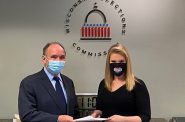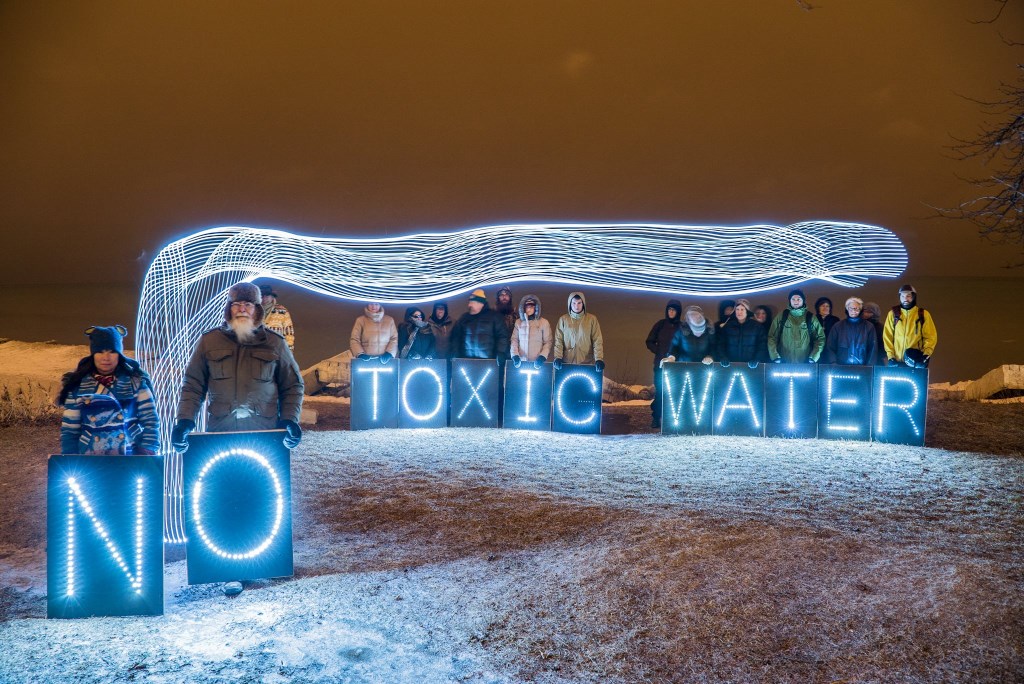Wisconsin’s Water Resources Under Threat
State leaders and DNR now side with water polluters over citizens.
It should be an easy question: Is a plentiful supply of clean water valuable and important? For decades, Wisconsin answered that question with an emphatic “yes” and worked hard to protect our natural blessing of lakes, rivers and groundwater.
Unfortunately, the current leadership of our state government seems to think otherwise. They have failed in one of their most basic duties — to safeguard the water resources of this state. For the past five years, laws protecting our waterways have been weakened and the safeguards that remain have been weakly enforced. The result has been more polluted lakes, befouled drinking water, and streams that run dry.
Consider Kewaunee County, where over 30 percent of the wells tested contained pollutants at levels that are unsafe for human consumption. A recent investigative report concluded: “The pollution of Kewaunee County ranks among the most hazardous of any community in the United States.” Because the Department of Natural Resources, now strictly controlled by Scott Walker, has refused to control the spreading of large quantities of manure from industrial-sized farms there, a judge ruled that “massive regulatory failure” led to the widespread water pollution.
What’s happening in Kewaunee County is being repeated across the state as our current state government sides with polluters over citizens.
An example of weak enforcement happened in Jefferson County, where a waste-hauler illegally dumped human waste next to 40 drinking-water wells. Even though professional staff at DNR recommended action against the polluter, Walker’s partisan appointees let him off with barely a wrist slap. Are you surprised that the polluter in question was a campaign contributor to Walker and other Republican politicians?
Things have gotten so bad that the DNR is not only failing to enforce the law but is actually stopping local governments from protecting their water resources. Bayfield County is confronted with the possibility of an out-of-state corporation placing a massive hog farm upstream from Chequamegon Bay. When the county enacted an ordinance to control potential pollution, Walker’s DNR stepped in to block the measure. Think what would happen to beautiful Chequamegon Bay and Lake Superior with the recent flooding in that area and the manure from 26,000 hogs.
It’s not just water quality that’s at risk — it’s quantity too. Lakes and streams have been drying up in the Central Sands region, largely due to agricultural high-capacity wells sucking large volumes out of water from the aquifer. For example, Long Lake in Waushara County, once a prize bass fishery, is now often bone dry. Instead of regulating high-capacity wells to protect a precious resource, the Walker administration has directed the DNR to ignore the cumulative impact of overpumping by corporate farms, many of which have been padding Walker’s campaign account.
Conservationists have become so alarmed by the dereliction of duty by Walker and his appointees that they filed an unusual formal request with the U.S Environmental Protection Agency asking that agency to take action because our state government under Walker is failing to follow federal water pollution laws.
Maybe Scott Walker should take a trip to Flint, Michigan, so he can see firsthand the importance of abundant clean water. Unlike past governors of both parties, it’s clear that Walker hasn’t yet learned that important truth.
Spencer Black represented the 77th Assembly District for 26 years and was chair of the Natural Resources Committee. He currently serves as the vice president of the national Sierra Club and is an adjunct professor of urban and regional planning at UW-Madison.
This column was originally published by Madison’s Cap Times.
Op-Ed
-
Why Vote for MPS Funding Referendum
 Mar 30th, 2024 by Nehemiah Edwards
Mar 30th, 2024 by Nehemiah Edwards
-
Wisconsin’s Very Own Rudy Giuliani Should Not Oversee Judicial Ethics
 Mar 25th, 2024 by Richard Niess
Mar 25th, 2024 by Richard Niess
-
Voting at Wisconsin’s Universities Isn’t Easy
 Mar 17th, 2024 by Nicole Laudolff
Mar 17th, 2024 by Nicole Laudolff
















